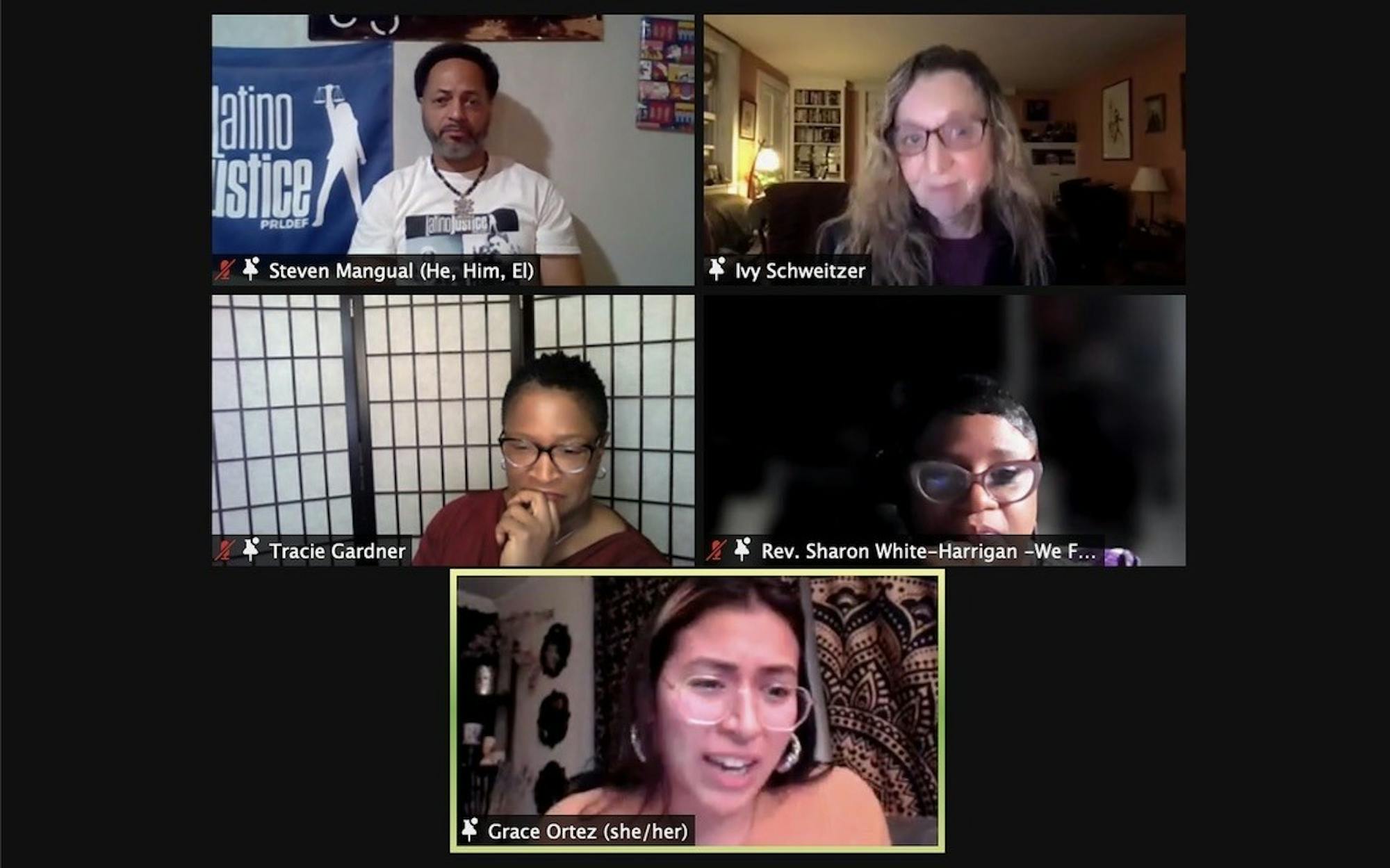On Feb. 24, the Dartmouth Student Prison Initiative hosted a Zoom webinar titled: “The Crisis at Rikers Island: A Call to End Mass Incarceration,” during which panelists discussed events that have exacerbated incarceration rates, particularly among women.
The event featured vice president of policy advocacy at Legal Action Center Tracie Gardner, justice advocate coordinator at Latino Justice Steven Mangual and executive director of the Women’s Community Justice Association Rev. Sharon White-Harrigan. English and creative writing professor Ivy Schweitzer moderated the discussion.
The group discussed the systemic nature of mass incarceration in the United States, the growing incarceration rate among women and why incarceration is a racial issue. Other topics included possible solutions and alternatives to incarceration, both nationwide and at Rikers Island — an island on the East River that hosts New York City’s largest jail.
Co-head of DSPI Esme Lee ’24, who organized the webinar, said that she reached out to The Freedom Agenda –– an advocacy group pursuing decarceration and investments in communities disrupted by punishment –– to see what DSPI could do on campus to advocate for the end to mass incarceration.
“[The Freedom Agenda] wanted to do a panel, and they are interested in mobilizing college students to get involved in this issue,” Lee said.
The panelists began the conversation by examining the historical context behind mass incarceration –– specifically, how the start of the War on Drugs in the 1980s led to mass incarceration “to keep the people oppressed,” according to White-Harrigan. Mangual, who was formerly incarcerated at Rikers Island, explained how the Reagan administration escalated the War on Drugs, which began under President Richard Nixon, through policies that formally criminalized drug use.
“The Reagans were the ones that took over after [Nixon] … with their ‘just say no’ [policy], and their attack, and their criminalization of drugs,” Mangual said. “It was all part of their plan to stifle the growing social movements that [were] coming from the community: Black and brown folks, native folks, women, people from the gender non conforming community, the LGBTQ community.”
According to White-Harrigan and Gardner, the Reagan administration escalated the campaign against drugs as a method to disproportionately oppress certain social and racial movements. The policies continued into the Clinton administration, Mangual added.
The War on Drugs “was really the war on people who were perceived to use drugs,” Gardner said.
White-Harrigan also spoke about the historical link between slavery and the prison system, the growing rate of female incarceration rates today and how these issues affect communities.
“[Women] have gotten criminalized for being poverty-stricken,” White-Harrigan said. “The same people that kept us enslaved … their ancestors are the ones that now built these systems.”
According to White-Harrigan, a clause in the 13th Amendment allows the United States to perpetuate racism and slavery through the prison system. The amendment, ratified in 1865, outlaws slavery and involuntary servitude except as a punishment for crime in which the accused party “shall have been duly convicted.”
“In the 13th amendment, there’s a part of it that talks about abolishing slavery except those who are in prison,” White-Harrigan said. “Slavery still exists within the prison system.”
Gardner argued that the U.S.’s high incarceration rate is linked to the system’s roots in slavery and racism. White-Harrigan added that, in her view, mass incarceration will not end until the United States makes progress toward eliminating racism.
The panelists also discussed potential solutions and alternatives to help end mass incarceration.
Mangual noted the importance of pushing for rehabilitation programs for inmates and other social programs. Mangual mentioned the Violence Interrupters, an organization led by people who were formerly incarcerated with the goal of preventing gang violence through mediation and providing role models — interventions that have had positive effects at the community level.
“What works comes from the community, what works are the front end interventions, the Violence Interrupters, the formerly incarcerated leaders,” Mangual said. “... Everyone should be held accountable [for their crimes] … but should we be using the same [prison] system that has failed us the last 40-50 years?”
Gardner also called for an end to the use of Rikers Island, which has made news for poor conditions caused by staffing and healthcare issues.
“What we have done [at Rikers Island] has not made our community safer, has not made them healthier, has not made them stronger,” Garder said. “It hurts the city to continue to have Rikers exist.”
Jordan Narrol ’25, who attended the panel, praised the speakers for their comments and advocacy work.
“It was an amazing panel… [it] had a lot of great discussions about really important issues,” he said. “All of the speakers were really well spoken, they all had really unique perspectives on the issue.”
According to Lee, DSPI will host a second webinar “on women and transgender rights in the prison system” and prison abolition on March 3.




